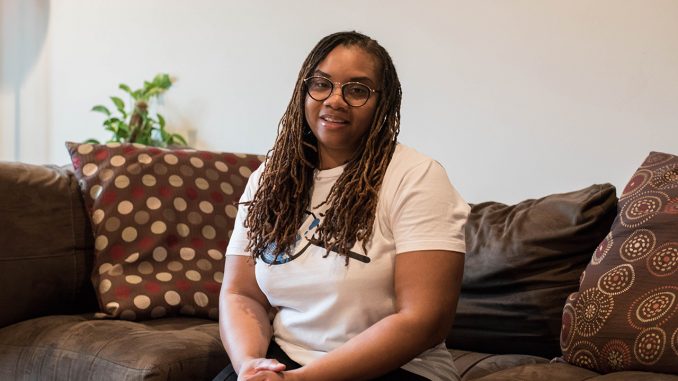
Antoinette Campbell never knew her childhood love of puzzles and crosswords combined with her passion for science would lead her to become a forensic scientist. As a child, the Philadelphia native did not even know the job existed.
“I did not have any plans on becoming a scientist because that wasn’t a field that was introduced to me at a young age,” said Campbell, a 2000 chemistry alumna.
While at Temple, Campbell was a pre-pharmacy major and had an interview with the Philadelphia Water Department. That’s when she learned there were openings in forensics.
Now 42 years old, Campbell wants to get young Philadelphians interested in the forensics field.
Forensics is the application of science to the detection of crime.
After spending a decade working as a forensic scientist and in quality assurance with the Philadelphia Police Department, she founded the Association of Women in Forensic Science in 2010 to provide networking opportunities and programs for female forensic professionals, college students and teenagers.
Campbell said she was inspired to create AWIFS after she received a large number of emails from college students, parents and professionals who wanted to learn more about forensics. She first developed a website with information about college forensics programs and tips on how to prepare for a career. She said she wants people to know that forensics is a STEM career and it requires a degree. Most people assume it is related more to investigation and criminal justice, she said.
“It’s an organization that serves a population of people who are just interested in getting resources about forensic science,” Campbell said. “It gives them a starting point as to where they can find information.”
Campbell has hosted networking events to connect people working in forensics with college students pursuing a career.
AWIFS also conducts a youth workshop series, Club Philly Forensics, for students ages 12 to 18. The workshops, which are held once or twice per week, teach students about forensic chemistry and biology, as well as topics related to criminal justice, like violence, crime, drug use and addiction.
Her friend and fellow AWIFS colleague, Neisha Rose, said the organization’s work is important to show students the realities of forensics.
“You’re dealing with investigations involving people who were murdered or sexually assaulted,” Rose said. “And you, as a forensic scientist, need to be completely detached from that.”
Campbell said she wants her students to learn about all aspects of the criminal justice system, and how forensic science plays a role.
“I just wanted to help kids learn about forensic science,” Campbell said. “I wanted to guide them and give them more direction and give them the information they need to get in the field.”
Many people, Campbell said, run into the obstacle of not realizing the various careers in forensics, like crime scene technician, forensic biologist and psychologist, and they get lost deciding which to pursue. She helps by providing information on each job and figuring out where her students thrive. Her workshops and website look at various crime-solving techniques, and what future forensic scientists should know about psychology and testifying on trial.
In addition to AWIFS, Campbell performs community outreach with local health and science institutions. Recently, she led a field trip for students to attend the Cradle2Grave program at Temple University Hospital to learn about gun violence.
“Hopefully I will be able to expand so I can help those kids and parents who live in other cities who cannot attend the workshops,” Campbell said. “That’s the goal, to be able to help as many youths and families as I can.”
Although the primary focus of AWIFS is to encourage women to join the forensics field, Campbell said she also wants to promote racial diversity. One of the reasons she started her project was because she didn’t see anyone in forensics and science who looked like her.
Campbell has dreams of expanding her small organization globally, but right now she works to provide workshops to as many people interested in the Philadelphia area and New Jersey.
“I’m just a one-woman show,” Campbell said. “I do a bit of everything.”
“The world we live in is diverse,” she added. “Obviously from my experience I wanted to bring those opportunities to a lot of African-American youth, but, as well, it’s for all youth, all colors.”


Be the first to comment